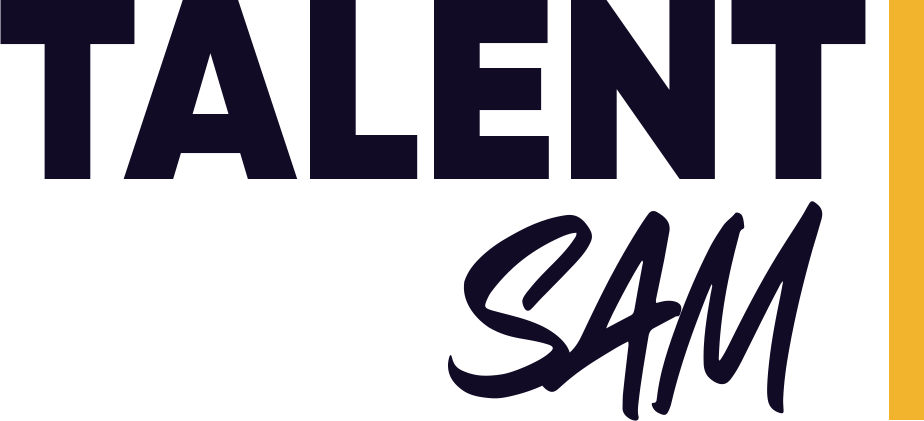The Real Estate Tech Stack We Recommend for Managing Remote Admin Teams
Managing remote teams, especially in industries like real estate, can present unique challenges. The real estate sector, particularly short-term rentals, requires quick responses, seamless coordination, and efficient administrative support. Managing outsourced short-term rental support effectively relies heavily on the right technology tools. To ensure that your team of remote workers stays productive, organised, and aligned with your company goals, having a solid tech stack is essential.
Here’s a breakdown of the key tools and technologies that can help you manage remote admin teams and streamline your short-term rental operations.
1. Project Management and Collaboration Tools
One of the most critical aspects of managing remote teams is effective project management. This is where tools like Trello, Asana, or Monday.com come into play. These tools allow you to organise tasks, set deadlines, and track progress in real-time. For real estate businesses managing remote admins, a visual task board or project management system helps keep everyone on the same page, regardless of their location.
Benefits:
- Task Tracking: Assign tasks to individual team members and track progress.
- Collaboration: Team members can comment, share files, and provide updates on tasks.
- Automation: Automate repetitive tasks to save time.
By using project management tools, you can ensure that all remote workers understand their responsibilities and deadlines, and you can monitor their work without micromanaging.
2. Communication Platforms
Communication is key to managing remote teams, especially when working with outsourced talent. Without in-person meetings, it’s essential to have a reliable communication platform. Slack is a popular tool for remote teams as it facilitates instant messaging, file sharing, and communication across channels. For more formal communications or video calls, Zoom or Microsoft Teams are excellent choices for remote teams working in short-term rental businesses.
Benefits:
- Instant Messaging: Enables quick communication between team members.
- Video Conferencing: Virtual meetings for face-to-face interactions, which helps with team building and communication.
- Integration with other tools: Slack integrates with project management tools, making task updates and alerts easier to manage.
Clear communication tools are fundamental when hiring remote workers, as they allow seamless collaboration despite time zone differences.
3. Customer Relationship Management (CRM) Systems
When managing a short-term rental business, keeping track of guests, inquiries, bookings, and reviews is crucial. A reliable CRM system, such as HubSpot, Salesforce, or Zoho CRM, is vital for real-time access to customer information. With CRM tools, you can store details of past and potential customers, track interactions, and streamline follow-up tasks.
Benefits:
- Guest Management: Track guest interactions, reservations, and reviews.
- Automated Marketing: Automate customer communications, including post-booking emails, reminders, and special offers.
- Integration with Booking Platforms: Link your CRM with platforms like Airbnb, Booking.com, and VRBO.
Using CRM systems allows you to maintain strong guest relationships, which is essential in the competitive world of short-term rentals.
4. Accounting and Financial Management Tools
Managing the finances of a short-term rental business involves tracking payments, expenses, taxes, and more. This can be particularly challenging when dealing with remote teams and outsourced staff. QuickBooks, Xero, or FreshBooks are all excellent options for businesses looking to manage finances efficiently. These tools help you handle payroll, track expenses, generate invoices, and create financial reports, all of which are necessary when running a business remotely.
Benefits:
- Expense Tracking: Keep an eye on operational costs, including outsourced staff expenses and short-term rental supplies.
- Payroll Management: Ensure timely and accurate payments to remote workers.
- Financial Reporting: Generate reports that provide insights into your business’s financial health.
Financial planning tools are invaluable, especially when outsourcing staff or managing multiple remote workers in different time zones.
5. Property Management Systems (PMS)
A Property Management System (PMS) like Guesty, Hostaway, or Lodgify can streamline the day-to-day operations of managing short-term rental properties. A PMS integrates booking channels, communication with guests, housekeeping schedules, and payments all in one platform. This tool will make managing your remote team of admin staff much easier as it centralises your operations.
Benefits:
- Unified Dashboard: View and manage all bookings, guest communications, and property details in one place.
- Automation: Automate guest check-ins, reminders, and housekeeping schedules.
- Integration: Sync with platforms like Airbnb, Booking.com, and VRBO for seamless bookings.
For businesses with outsourced short-term rental support, a PMS can centralise operations, making it easier to manage remote teams and ensure that everything runs smoothly.
6. Time Tracking and Payroll Tools
When managing a remote team, particularly when outsourcing admin support, tracking work hours is essential for payroll and productivity analysis. Harvest or Toggl are simple yet effective time tracking tools that allow you to monitor how much time your team spends on various tasks. These tools are particularly useful if you are outsourcing work to different countries, as they allow you to track time zones and ensure workers are paid accurately.
Benefits:
- Accurate Time Tracking: Monitor how much time is spent on tasks, whether they are project-specific or general admin duties.
- Payroll Integration: Connect time tracking data with your payroll system for accurate payments.
- Remote Team Insights: Understand productivity trends and identify areas for improvement.
Time tracking is essential to ensure you are optimising productivity and budgeting effectively when hiring remote workers.
7. Cloud Storage and File Sharing Tools
Storing and sharing documents across a remote team can be challenging. Google Drive, Dropbox, and OneDrive are excellent tools for centralising your documents, contracts, reports, and other important files. These tools ensure that your remote admin team can access critical information from anywhere, at any time.
Benefits:
- Secure File Sharing: Share documents safely and ensure that only authorised personnel can access sensitive data.
- Real-Time Collaboration: Multiple users can edit files simultaneously, making collaboration easier.
- Backup and Recovery: Ensure that files are safely stored in the cloud with automatic backups.
Having cloud storage systems in place is vital to ensure your remote team can access the information they need at any time.
8. HR and Payroll Software
Outsourcing staff often requires handling international payroll and managing the legal aspects of hiring workers from different regions. Gusto, ADP, and Papaya Global can simplify the HR process, especially when hiring remote workers across various countries. These platforms handle payroll, taxes, benefits, and compliance, making them ideal for managing remote or outsourced teams.
Benefits:
- Compliance with Local Laws: Ensure you are meeting local tax and labour laws when hiring remote workers.
- Automatic Payroll: Automatically calculate wages and tax deductions.
- Global Reach: Pay employees and contractors across multiple countries in their local currencies.
For businesses outsourcing to remote workers or contractors in Africa or other regions, HR and payroll software can be a game-changer in ensuring compliance and managing the complexities of international hiring.
9. Remote Work Policies and Employee Onboarding Tools
As your team of remote workers grows, having well-defined remote work policies is essential for maintaining consistency and alignment with company goals. Tools like BambooHR and WorkBright can help streamline the employee onboarding process, ensuring your remote admin team understands your company’s culture, processes, and expectations from the outset.
Benefits:
- Onboarding: Automate and streamline the onboarding process for new remote hires.
- Policy Management: Define and share remote work policies with your team.
- Training: Provide resources and training materials to remote workers.
Having clear remote work policies and a seamless onboarding process can help prevent miscommunication and set your remote admin team up for success.
Final thoughts
Managing remote teams, especially in real estate and short-term rental businesses, requires a combination of effective communication, task management, financial oversight, and team collaboration. By implementing the right tech stack, including tools for project management, communication, CRM, accounting, and more, you can streamline operations and ensure that your outsourced admin team is productive and aligned with your business goals.
When hiring remote workers or outsourcing administrative tasks, it’s crucial to build a tech stack that supports your team’s needs while facilitating smooth operations. With the right tools in place, you can overcome the challenges of remote work and scale your short-term rental business successfully.
Let your local team focus on in-person tasks. Outsource the rest. Visit talentsam.com/contact to book a call.

